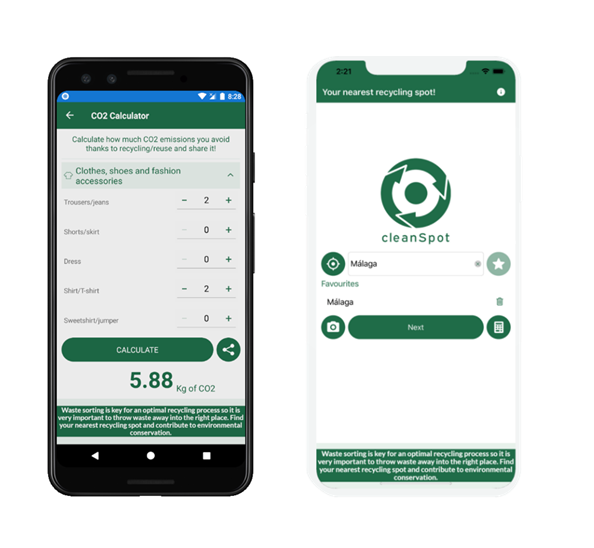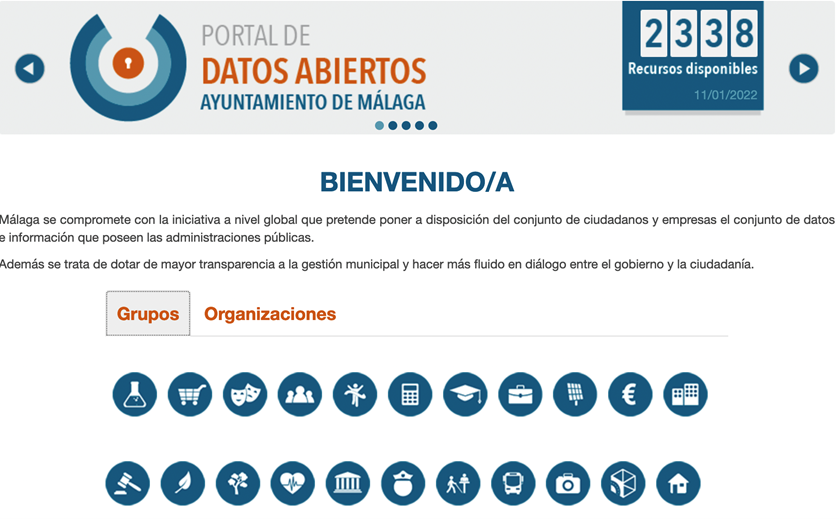Open-data portals and filling data gaps that hold back the open data’s potential
The case of EU Datathon winner cleanSpot
Data.europa.eu runs its annual EU Datathon to bring together open-data enthusiasts and application developers in a competition to show how open data can solve real-world problems. In 2021, the Datathon was divided along three “societal challenges”—long-term problems facing society that need to be solved. These challenges were about environmental sustainability and the European Green Deal; economic equity and an economy that “works for people”; and how to better digitalise Europe.
Speaking with one of the winners of the competition, however, it becomes clear that gaps in open-data sets hold back applications that can help solve problems that society faces. The issue here is the inconsistent availability of data across jurisdictions. This reduces the effectiveness of the developer’s solution and also slows the application’s widespread adoption.
Green open data
As an example, cleanSpot—a second-prize winner at the 2021 EU Datathon—helps residents recycle their unwanted items in municipalities in Spain. Designed as a mobile app for iOS and Android, it provides a map of recycling facilities in someone’s neighbourhood. At the same time, it sends notices about recycling spot incidents, provides notifications when mobile recycling vehicles are in their neighbourhood, and sends tips about recycling and energy savings.
In addition to providing information to residents, the cleanSpot app looks to “gamify” some elements of re-purposing and recycling unused items. In the app, users can calculate the amount of CO2 that is saved when someone else takes their old item rather than buying something new. In some municipalities, accumulation of points can lead to discounts on municipal taxes, vouchers for local businesses, or even cash payments. While some risks exist for gaming the app itself (for example, if someone chooses to replace and recycle an appliance earlier than they normally would with money saved), if implemented correctly, it encourages residents to change their behaviour, hence contributing to Europe’s green ambitions.

Data requirements for the app
Ideally, the data required to share information with residents about the location of facilities and pick-up vehicles would come from a single dataspace, where the provider could collect the required datasets for each municipality where it would want to offer its service. However, in this case, the makers of cleanSpot need to develop partnerships with each municipality with which they want to work. In general, cleanSpot works with numerous cities in Spain, but also with some private actors involved in recycling, such as Madre Coraje, which provides containers to collect resalable items.
When it’s available, the cleanSpot application uses open data provided at the local level by municipalities that provides longitudinal and latitudinal location data that can be translated into the app. In case locations provide open data, it is relatively simple to code the necessary requests to publicly available Application Programming Interfaces (APIs). One of cleanSpot’s partners, the city of Malaga on the southern coast of Spain, gives re-users access to municipal data via a local open-data portal. This way, anyone interested gets easy to access to always up-to-date data.

However, some other municipalities that cleanSpot partners with don’t provide such central access. This does not mean that those municipalities are unhappy to share their data —simply that the process to get to the data requires a lot of legwork. In some cases, cleanSpot receives the data they need for their customers via an Excel file by email. As data have to be imported manually into cleanSpot’s systems, data updates become more cumbersome and time consuming.
The value of open-data portals
Even though the absence of a single portal providing access to data is not a primary obstacle to expansion, the example of cleanSpot shows that any development of the application requires at least some discussion and possible negotiation around access to data. It also demonstrates that even if all stakeholders support data sharing and if there are no data protection issues, the lack of infrastructure in which the data can be easily gathered and shared can be a roadblock.
Looking to stay tuned for more news and events? Follow us on Twitter, Facebook, and LinkedIn, or subscribe to our newsletter.
